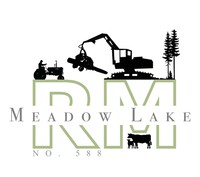Fire Protection
Emergency 911 / Fire Department 911 / RCMP 306-236-2570
INSURANCE COVERAGE:
Property owners are responsible for paying the cost of fighting fires on their property. Check with your insurance agent to determine if your fire insurance policy covers the cost of fighting fires.
BURN PERMIT:
It is very important to understand that a Burn Permit is required. A penalty may be applied if a Permit is not obtained from the RM of Meadow Lake in accordance with the Bylaws of the RM of Meadow Lake.
Prior to starting the fire:
a. Call the P.A 911 Service at 1-866-404-4911
b. If you live within 4.5 km of the forest boundary, you must call either:
1. Dorintosh Fire Cache (if located on the west side of hwy 903 & Rge Rd 3162)
Call: 306-236-7696 (from Apr 01-Oct 31)
2. Big River Fire Cache (if located on the east side of hwy 903 & Rge Rd 3162)
Call: 1-306-469-2500 (from Apr 01-Oct 31)
Burn Permits require a yearly renewal, March 31st of year.
FIRE BAN:
A Burn Permit will be VOID while Fire Ban is in effect.
A Fire Pit Burn Permit can be issued and used during a Fire Ban with the following conditions:
1. The immediate area has received reasonable precipitation.
2. The applicant takes reasonable precaution to ensure the immediate area has been cleared of flammable material and is 6 metres from any structure.
3. The fire pit shall not be used during windy conditions.
4. The fire is properly extinguished after use.
5. Burn responsibly.
6. This permit does not provide liability coverage to the Permitee. The Permitee is responsible for all, and any costs incurred.
Protective Services - Quick Links:
Emergency Preparedness for Farm Animals
